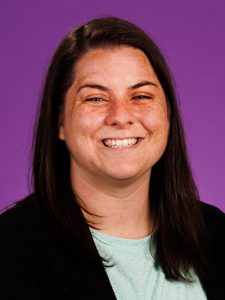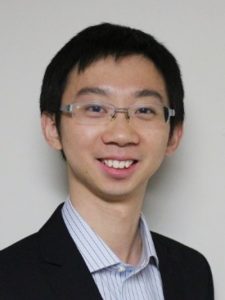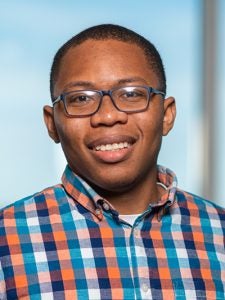2023 EOSA Scholars
The following faculty members have been selected to participate in the 2023 Engagement and Outreach Scholars Academy program.

Assistant Professor, Human Development and Family Science
bergesonc22@ecu.edu
Dr. Carrie Bergeson earned her doctorate in Human Development and Family Science from Montclair State University. She is a critical qualitative community-engaged scholar who works with youth and racialized and marginalized populations. Her research seeks to inform sense of community, programming and social justice. She is partnering with the historic HB Sugg, in Farmville. Dr. Bergeson is working with her EOSA partner to develop community driven programming that will empower the local youth to engage with adult stakeholders and policy makers in a variety of community improvement efforts. Dr. Bergeson hopes these experiences will result in the development of a community youth advisory board.

Associate Professor, College of Engineering & Technology
huangy21@ecu.edu
Dr. Yilei Huang is an Associate Professor in the Department of Construction Management. He received M.S. and Ph.D. degrees in Civil Engineering from the University of Kansas. Dr. Huang holds the FAA Remote Pilot certificate and the AGC CM-BIM certificate, and is an Autodesk Certified Professional in Revit Architecture and Structure. Dr. Huang’s research interests include Building Information Modeling (BIM) in construction education and the applications of Virtual Reality/ Augmented Reality (VR/AR) and Unmanned Aircraft Systems (UAS) in construction practice. In his previous projects, Dr. Huang’s team investigated the methods of using laser scanning and HoloLens to evaluate building renovation, applying laser scans and VR to reconstruct historical structures, and employing HoloLens for project planning and as-built verification. In this EOSA project, Dr. Huang will partner with Pamlico Community College to provide training and resources on emerging construction technologies to community college students. This partnership with local communities aims to improve students’ skill levels in advanced construction technologies that the community colleges do not typically provide access to, and ultimately enhance local students’ career opportunities as well as the construction businesses in Eastern Carolina.

Eric Wade
Assistant Professor, Department of Coastal Studies
wadee21@ecu.edu
Dr. Eric Wade’s research explores decision-making and behaviors in natural resources, primarily in coastal and marine systems. He is interested in understanding the drivers and feedback of individual and collective decisions and how stakeholders navigate socio-ecological change. At the same time, his research also aims to understand the influence and interaction of formal and informal institutions on the decision-making strategies of stakeholders. Dr. Wade primarily explores these topics interdisciplinary, drawing from theories in social psychology, behavioral economics, and sociology.

Tianjiao Zhao
Assistant Professor, College of Engineering & Technology
zhaot22@ecu.edu
Tianjiao Zhao joined the Department of Construction Management at East Carolina University as an assistant professor in Fall 2022. Prior to that, she worked as an instructor at ECU in Spring 2022. Dr. Zhao maintains an active research agenda focusing on improving the efficiency, safety, and eco-friendliness of the construction industry. Tianjiao has extensive experience in civil engineering, BIM, green building, dams, and semantic web technologies. Her most recent research employed semantic web technologies to integrate the entire lifecycle of road infrastructure information. Her proposed data model has significantly boosted the data exchange across various road construction sectors with little human effort involvement. Dr. Zhao’s EOSA project explores the actual circumstances of female employees in the ECU community by looking into their requirements and aspirations for themselves in the workplace, including their work content, income level, and the arrangement of women facilities there. Based on the analyzing results of the data gathered, community improvement recommendation reports will be generated that are more in line with the demands of women. The findings will illuminate potential approaches to enhance support of community female employees in the construction field, and the final region-specific report will be delivered to local construction industry.